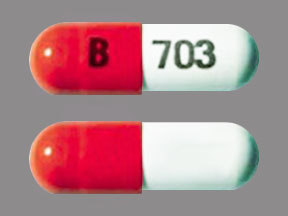Ferrex 150 Plus and Alcohol/Food Interactions
There are 2 alcohol/food/lifestyle interactions with Ferrex 150 Plus (ascorbic acid/iron polysaccharide).
Iron Polysaccharide Food/Lifestyle
Moderate Food Interaction
Consumer information for this interaction is not currently available.
ADJUST DOSING INTERVAL: Concomitant use of some oral medications may reduce the bioavailability of orally administered iron, and vice versa.
Food taken in conjunction with oral iron supplements may reduce the bioavailability of the iron. However, in many patients intolerable gastrointestinal side effects occur necessitating administration with food.
MANAGEMENT: Ideally, iron products should be taken on an empty stomach (i.e., at least 1 hour before or 2 hours after meals), but if this is not possible, administer with meals and monitor the patient more closely for a subtherapeutic effect. Some studies suggest administration of iron with ascorbic acid may enhance bioavailability. In addition, administration of oral iron products and some oral medications should be separated whenever the bioavailability of either agent may be decreased. Consult the product labeling for specific separation times and monitor clinical responses as appropriate.
Switch to professional interaction data
Ascorbic Acid High Blood Pressure (Hypertension)
Moderate Potential Hazard, Moderate plausibility
ascorbic acid (vitamin C) - sodium
Ascorbic acid preparations contain sodium. The sodium content should be considered when used in patients with sodium restricted diets and conditions require sodium restriction, such as congestive heart failure, hypertension, and fluid retention.
Switch to professional interaction data
Ferrex 150 Plus drug interactions
There are 117 drug interactions with Ferrex 150 Plus (ascorbic acid/iron polysaccharide).
Ferrex 150 Plus disease interactions
There are 7 disease interactions with Ferrex 150 Plus (ascorbic acid/iron polysaccharide) which include:
- hemoglobin abnormalities
- hemolysis
- kidney stones
- sodium
- achlorhydria
- gastrointestinal irritation
- dialysis
More about Ferrex 150 Plus (ascorbic acid/iron polysaccharide)
- Check interactions
- Compare alternatives
- Drug images
- Side effects
- Dosage information
- During pregnancy
- Drug class: iron products
Related treatment guides
Drug Interaction Classification
| Highly clinically significant. Avoid combinations; the risk of the interaction outweighs the benefit. | |
| Moderately clinically significant. Usually avoid combinations; use it only under special circumstances. | |
| Minimally clinically significant. Minimize risk; assess risk and consider an alternative drug, take steps to circumvent the interaction risk and/or institute a monitoring plan. | |
| No interaction information available. |
See also:
Further information
Always consult your healthcare provider to ensure the information displayed on this page applies to your personal circumstances.


